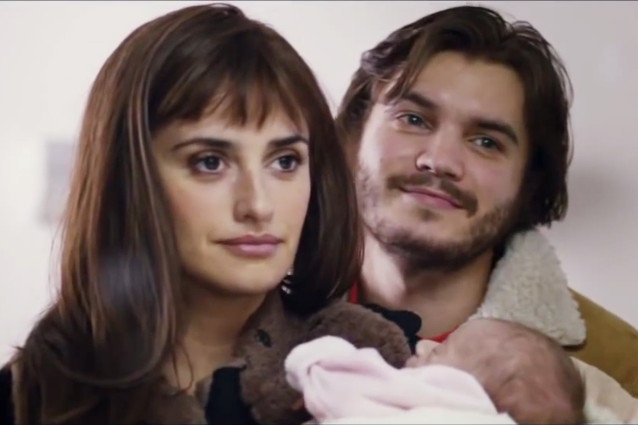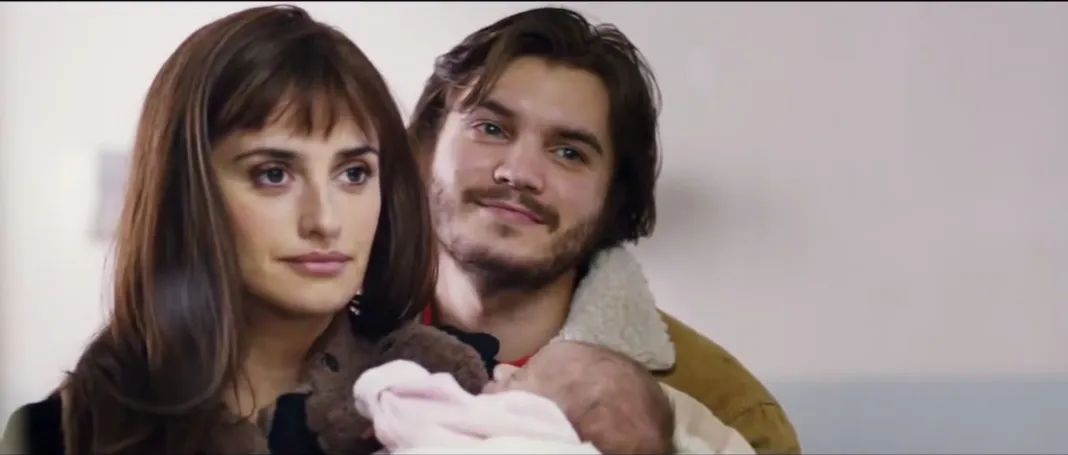 eOne Films
eOne Films
The Bosnian War is not frequently tackled by major motion pictures in Hollywood. It takes a director with an intimate relationship with such a tragedy to really bring its history and implications to life onscreen. Sergio Castellitto, director of the new film Twice Born, strives for a vivid illustration of the hardships intrinsic of this conflict — on locals and visitors alike — all the while telling a tremendously personal story of a mother and the son she fought so hard to have.
We got a chance to ask Castellito a few questions about his drama, which stars Penelope Cruz and Emile Hirsch as a couple struggling with the conflicts of love, family, and war all at once.
One would assume, from watching this film, that the Bosnian War has some degree of personal or historical significance to you. Can you talk a little bit about why you felt impelled to tell a story about this specific era?
After the dissolution of former Jugoslavia, the last great European war exploded, and this same war we europeans somehow ignored. It’s enough to think that while we Italians went to spend summer holidays on the beaches of Rimini and the Adriatic coast, on the opposite coast something terrible was just starting to occur. In the frame of this last war of Europe, there is the extraordinary story of this girl who carries out this personal little war: maternity.
On that token, what sort of relationship did you have with this book?
I have the chance and the privilege to be married to a great Italian writer, Margaret Mazzantini, author of Twice Born and also of Don’t Move, my first film as director. It would have been a pity not to take advantage of that. I have always followed Margaret’s writing process since the very first drafts of her books, I give her editing suggestions and in the meanwhile I start to unbury the images that are concealed behind the words she writes. That’s a very thrilling process.
You accomplish the impressive task of making Penelope Cruz actually look aged and worn in the present day scenes. Did you ever consider using different sets of actors in fear of not being able to achieve this effect (as some films do when depicting two different eras), or were you always set on using the same actors playing older and younger?
Playing a character who crosses many years is always a challenge that actors use to like very much. Penelope was just in the right age to embrace a character who had to represent both youth and maturity.
This is a finely, deeply human drama, but you can’t say that there are not a fair amount of “twists” in the movie. At various points, you learn different clues about the parentage of Pietro: that he’s not his father’s son, that he’s Diego’s son, that he’s not Gemma’s son, that he’s not Diego’s son! Are you at all a fan of the sorts of films that live and breathe on twists and reveals? Can you talk a little bit about intertwining these notes with your story as to balance the information with the substantial drama?
This movie is first of all an extraordinary love story between Gemma and Diego and just like every love story it is passionate, exciting, even wicked and foolish. This love story becomes adult when Gemma finds out she is sterile and she lives this condition as a dramatic disablement, even though she is a progressive woman. She will find that child in the less predictable puddle and she’ll succeed taking light out of that. As my wife uses to say “artists are the inventors and the unveilers of secrets”. This movie invents and unveils secrets, it tries to frame secrets in order to unveil the truth at the end. Every single character has a secret and holds it tight. Every single character is pursuing a dream and in that dream, there is the secret.
I have heard that Nirvana songs are notoriously difficult to get the rights to, because the band has so much artistic integrity. Was it difficult for you to obtain the rights to the music you used? Did you earn their favor due to the content of your movie?
Actually we just let Nirvana have the screenplay, they read it and they found the project ethically worthwhile and – as much as they can be strict – Twice Born was granted the copyright. It’s a great honor for me and for the whole project.
Beyond Nirvana, music plays a tremendous role in this movie, what with Bruce Springsteen peppered throughout and characters playing their own assortment of instruments. Can you speak a little on the role of music in your life, or what role you might think it would play in the lives of characters working through circumstances like these?
One of the scalpels that’s always been used in cinema is melodrama. It’s a way to cut wounds and let sounds and lights bleed out. I used different kinds of music, from classical to pop/rock that fitted better to frame the historical era, though always trying to compose a balanced musical score of sounds, lights and words. As a matter of fact I think that the emotionally epic part has to be sustained also on the soundtrack level.
The overall tone of this film, especially in the latter half, is quite somber. Yet there are moments of merriment, especially from your character of Gemma’s father and his relationship with Diego. Is there a reason you opted to take on one of the film’s primary sources of pep and light? Do you find that your stories need this kind of “relief,” and do you enjoy (as a director and an actor) being the one to relay it into the films?
I just wanted to describe characters and their dreams through their humanity that can be sometimes tragic, sometimes funny. Besides [the fact that] I believe in happy endings, I think directors have to represent happy endings, because life is so painful and punishing, at least in cinema we deserve to find relief.
Twice Born is available in theaters and On Demand now.


